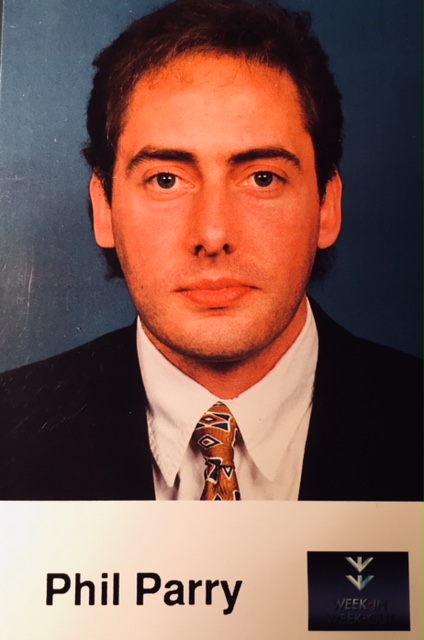- ‘Lies, damned lies etc…’ - 13th February 2026
- Missing in action - 12th February 2026
- Travel news again - 11th February 2026

Even after 23 years with BBC Cymru Wales (BBC CW), and 38 years in journalism (when he was trained to use clear and simple language, avoiding jargon), it is the few years as a trainee reporter on the Cardiff paper, the South Wales Echo (SWE) (then the biggest-selling newspaper produced in Wales, and one of the most important evenings in the UK) which have provided our Editor Phil Parry with key memories about some of the weighty characters in journalism (as well as crucial lessons).
These memories have been re-awakened by the release now of a new book about his early career by the investigative journalist Carl Bernstein.
 In the past, Phil has described how he was assisted in breaking into the South Wales Echo office car when he was a cub reporter, recalled his early career as a journalist, the importance of experience in the job, and made clear that the ‘calls’ to emergency services as well as court cases are central to any media operation.
In the past, Phil has described how he was assisted in breaking into the South Wales Echo office car when he was a cub reporter, recalled his early career as a journalist, the importance of experience in the job, and made clear that the ‘calls’ to emergency services as well as court cases are central to any media operation.
He has also explored how poorly paid most journalism is when cub reporters had to live in squalid flats, the vital role of expenses, and about one of his most important stories on the now-scrapped 53 year-old BBC CW TV Current Affairs series, Week In Week Out (WIWO), which won an award even after it was axed, long after his career really took off.

Phil has explained too how crucial it is actually to speak to people, the virtue of speed as well as accuracy, why knowledge of ‘history’ is vital, how certain material was removed from TV Current Affairs programmes when secret cameras had to be used, and some of those he has interviewed.
He has disclosed as well why investigative journalism is needed now more than ever although others have different opinions, how the pandemic played havoc with media schedules, and the importance of the hugely lower average age of some political leaders compared with when he started reporting.
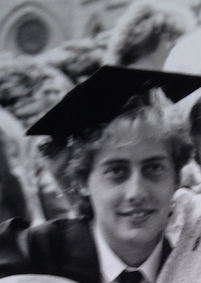
A green-horn young reporter who is fresh out of university has a lot to learn.
That was certainly the case with me, and I learned a lot, very quickly from all the eccentric characters I encountered, on the evening newspaper in Cardiff, the South Wales Echo (SWE), where I started as a trainee reporter in 1983.
As well as both being investigative journalists, I share that fact also with the great Carl Bernstein, who has just written a book about how he started.
I am certainly not in Mr Bernstein’s league (his work along with colleague Bob Woodward did, after all, bring down the US President following the Watergate revelations), but we at least have a background in common.
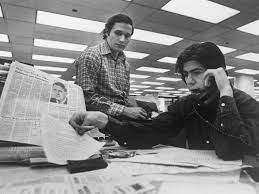
He talks in his book of how the police reporter, on his first paper, Ted Crown, although a terrible bigot, possessed an allegiance to truth and getting facts right, which was demonstrated in spades, when he suspected a police chief of framing an innocent black man.
The brilliant city Editor, Sidney Epstein, was known for dressing like a model from Esquire, and organised the publication of stories about important events within minutes.


These figures (and others like them) called to mind the array of extraordinary characters, that I came across, too, on the SWE in the early 1980s, and how each could offer important lessons for me, although they were often wayward people!
One of them produced excellent copy in the morning, but he couldn’t be relied on in the afternoon because he would have had a few drinks.
Another reporter saw him talking to me and mimed lifting a glass to his mouth behind his back.
A shambolic figure who was widely-liked in the newsroom, again wrote superb copy, and also produced film reviews, where he would worry over every single word.

He told me once, that he had left his previous paper because he didn’t like the way the News Editor hung up his coat…
This reporter had supposedly fallen asleep in a chair with a meat pie in his pocket, woke up, found the pie and carried on eating it!
Another correspondent covered Cardiff’s magistrates court (or ‘mags’) in the morning, where accuracy was everything, but in the afternoon (because there was rarely a case to cover) he spent the time squirrelled away in the city’s central library looking at back copies of the paper and preparing ‘Echoes of the Echo’.
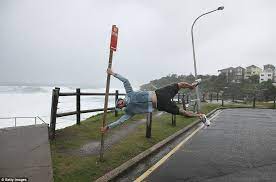
He was known as ‘Mad Jack’, said “Duw (God)” a lot for no apparent reason, and carried everything around in plastic bags. He was allegedly blown over by a freak gust of wind when we were reporting news of a gale which had struck South Wales.
A feature writer, who was known for getting his facts right, worked on my sister newspaper The Western Mail which was in the same newsroom.
He had reputedly fallen asleep DURING an interview with one of his subjects because he was so boring! You know the kind of thing: “I stormed ashore during the war…”. “ZZZZZ.”
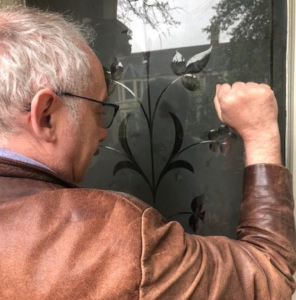
One first-class reporter who covered a lot of crime stories was a fairly tall character and wore a long dark coat. He told me how he was often mistaken for a police officer on the doorstep. He never lied or did it deliberately (which would have been against the law anyway) but he was aware of the mix-up and didn’t disabuse his interviewee because he could get more information that way.
On one famous occasion I watched through the corner of my eye as the News Editor of the paper, Stuart (‘Minto’) Minton, thumped one of those individuals because he was swearing at him in front of his daughter who’d come to pick him up.
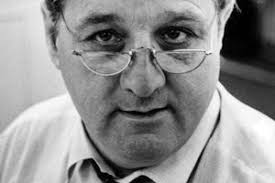
‘Minto’ was himself a larger-than-life character (literally) from whom I learnt a lot.
His victim fell at my feet as I sat perched on one of the desks talking to a friend. This extraordinary incident happened because the reporter’s expenses had not been signed, but he relied on them, and he would be left without money for the weekend. Screams echoed around the newsroom as people realised what had just happened, and for a middle-class kid straight out of university, used to people being nice to each other, this was eye-opening!

It’s people like these that taught me a HUGE amount when I started in journalism.
Unfortunately they didn’t turn me into a famous journalist like Mr Bernstein, or how to divulge facts which bring down a government!
Tomorrow – Phil looks again at the importance of impartiality, and how this concept is now being eroded, after a Welsh nationalist website which is supported by the taxpayer, was condemned on Wikipedia for providing “subjective journalism”, and accused on its own Facebook site of ‘stirring up hatred’.
The memories of his astonishing decades-long award-winning career in journalism as he was gripped by the rare disabling condition Hereditary Spastic Paraplegia (HSP), have been released in a major book ‘A GOOD STORY’ (which includes details of some of the amazing personalities he came across at the start). Order it now!

Regrettably publication of another book, however, was refused, because it was to have included names.








